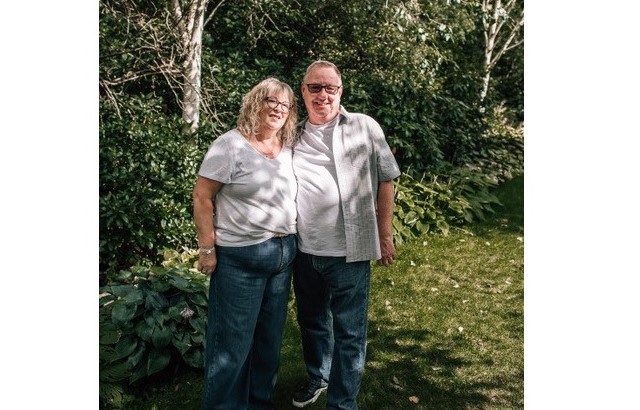

Around 6,000 heart attacks in the UK have been avoided in the last decade, researchers estimate, thanks to the introduction of a routine heart scan to investigate chest pain.

Coronary computed tomography angiogram (CCTA) scans help doctors to identify coronary heart disease, narrowing and blockages in the arteries that supply the heart with blood. If left untreated, coronary heart disease can lead to a heart attack.
Now, research part funded by us and published in The Lancet, shows that the benefits of CCTA scans extend as far as a decade beyond a patient’s scan.
Fewer heart attacks 10 years later
The 10-year follow up of the SCOT-HEART trial found that the number of non-fatal heart attacks in the group who had a CCTA scan was 28 per cent lower compared to those who had standard tests (90 vs. 124, respectively). Applied across the UK population and the current rate of CCTA use, researchers estimate that this equates to 6,000 heart attacks avoided over the last ten years.
Researchers at the University of Edinburgh who led the study say this is likely due to more people in the CCTA group being prescribed preventative medicines. At 10 years, 56 per cent of the group were taking medicines, including aspirin and statins, to reduce their risk of a heart attack compared to 49 per cent in the standard tests group.
Providing the evidence
The SCOT-HEART study involved over 4,100 people across Scotland with suspected angina – chest pain due to reduced blood flow to the heart muscle – who had been referred to a chest pain clinic. Half had a CCTA scan plus standard tests, and half received standard tests only.
Early results showed that people who had CCTA scans were more likely to undergo additional procedures in the first year after their scan. By five years the number of procedures had evened out between the groups, but the CCTA group were less likely to have had a heart attack and more likely to be taking preventative drugs.
Since 2016, UK guidelines have recommended CCTA scans as one of the first tests for someone experiencing new chest pain. The results of the SCOT-HEART trial fed into the evidence for the update.
The vital role of research
Professor Bryan Williams, our Chief Scientific and Medical Officer, said: “This study is a brilliant illustration of the vital role that research plays in unlocking new ways of preventing, diagnosing and treating heart and circulatory diseases. It’s not just here in the UK that SCOT-HEART has had an impact, this study has driven implementation of CCTA scans globally.
“Thanks to the introduction of CCTA scans, which BHF funding helped to make possible, doctors are able to identify and treat people at risk of heart attacks at an earlier stage – before they become patients. Ultimately, this means thousands of people are living for longer in good health, and families get to spend more time with their loved ones.”
The SCOT-HEART trial and follow up studies were funded by The Chief Scientist Office of the Scottish Government Health and Social Care Directorates, Edinburgh and Lothians Health Foundation Trust, British Heart Foundation, and Heart Diseases Research Fund.

Corinne Costello, 61, lives in Linlithgow, West Lothian, with her husband Gavin. She recently had a CCTA scan as part of the ongoing SCOT-HEART2 trial. She was first diagnosed with high blood pressure in her early 40s and has taken medication since then to manage the condition.
Corinne said, “Since being diagnosed with high blood pressure I have always had an awareness that it might cause me problems later in life. It hasn’t really impacted me over the past 20 years and I’ve led a completely normal life.
“However, when I was told about the SCOT-HEART trial and that there was a chance I could take part, I was eager to do so. The opportunity to find out more about the health of my heart was too good to turn down.
“I was assigned to the group that received a CCTA scan and couldn’t believe how efficient and painless the process was. I was apprehensive beforehand, but was made to feel incredibly relaxed by the medical team.
“The scan showed that I had mild plaque build-up in the arteries around my heart and it was decided that I would need to start taking medicines, such as aspirins and statins. The time from undergoing the scan to receiving the medicines was less than two weeks, which is just incredible.
“I feel really reassured that my heart is in a relatively good condition and I take great comfort knowing that there is now a clear pathway to follow to ensure it remains that way long into the future. The whole experience has given me peace of mind and I hope more people will stand to benefit from it in the future.”


